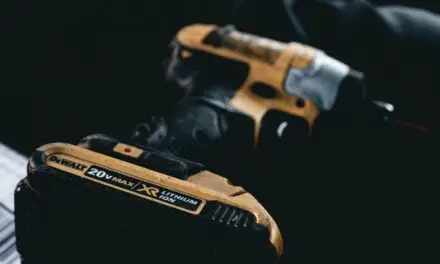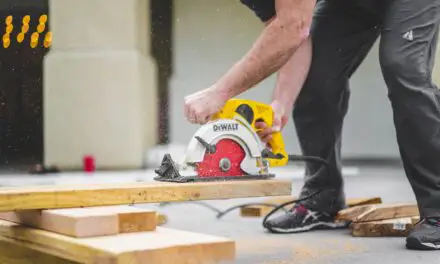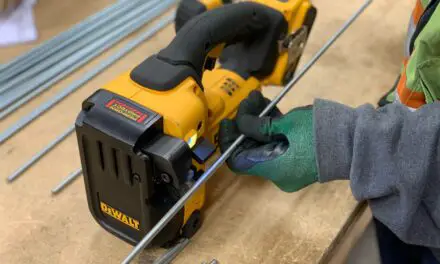Dewalt is a big name in the power tool world, and their 12 volt drills can be used in many general purpose projects. But, what if you don’t have a 12V battery available? Can you use a 20V battery on a 12V Dewalt drill?
You should never insert anything higher than a 12 volt battery into a 12 volt Dewalt drill. Doing so could overcharge the drill and not only kill the battery, but also permanently damage your drill.
Below, we will discuss more information on using different voltage batteries in 12V drills. Keep reading to learn everything you need to know to keep yourself and your drill safe!
Can You Use a 20V Battery in a 12V Dewalt Drill?
You cannot use 20 volt batteries when trying to power a Dewalt 12 volt drill. There are also no special 20 volt batteries Dewalt makes that can power their 12 volt drills.
When you insert a 20 volt battery into a 12 volt Dewalt drill, you risk overcharging and damaging your drill, potentially rendering it useless.
Using a drill with a higher voltage battery than it can handle can burn the motor up and may damage it permanently.
Additionally, batteries that are not meant for your Dewalt drill may not fit inside it. Many batteries of varying voltages are designed in a way that prevents interchangeability.
Can You Use Lower Voltage Batteries in Your 12V Dewalt Drill?
Just as Dewalt advises against using higher voltage batteries in 12 volt drills, they advise against using batteries lower than 12 volts.
This is because a lower voltage battery will cause your drill’s motor to work harder.
Using a lower voltage battery in your Dewalt drill will cause the motor to draw more amperage, making it run hotter than usual. This can put your drill at risk of smoking out.
Even if the motor on your Dewalt drill never burns up, a lower than required battery voltage can greatly shorten your drill’s lifespan, as well as reduce your drill’s torque.
What is the Difference Between a 20V Drill and a 12V Drill?
There are quite a few distinct differences between 20 volt drills and 12 volt drills, as well as the batteries that power them. The best drill for you depends upon your needs.
12 volt drills are smaller and lightweight, as are their batteries.
12 volt drills are also much more affordable, costing anywhere from $75-$200, and can be used for small construction projects.
20 volt drills are heavier and more expensive, but also sturdier and more durable. Although it takes a lot more energy to operate these larger drills, they can easily take on large projects.
Because 20 volt drills are large, heavy, and powerful, they are best used for jobs such as:
- Deck building
- Carpentry
- Remodeling projects
Additionally, 20 volt drill batteries last for a longer time.
If you need a lot of torque in your project and are working with surfaces that require a strong force to push a clean hole through, a 20 volt drill is your best bet.
Are 12 Volt Dewalt Drills Worth It?
Now that you know you cannot put a larger, more powerful battery in a 12V Dewalt drill, you might wonder if it is worth buying.
Purchasing a 12 volt Dewalt drill is not something you will regret. These drills make general home projects and DIY projects hassle-free.
You will also be pleased to find out that 12 volt drills can handle almost 80% of projects that 18 volt and 20 volt drills can.
All in all, 12 volt drills are some of the most versatile drills out on the market.
In Conclusion
You should never use a 20V battery in your 12V drill. Doing so may damage your drill motor, or damage the battery itself.
Additionally, you should never attempt to use lower voltage batteries on your 12 volt Dewalt drill. If you do, you risk overworking the motor, causing it to overheat and become damaged.
While 20 volt drills are great for heavy-duty projects, 12 volt drills are still versatile tools that are very much worth the investment.
These drills are lightweight, durable, and can help you complete any household project.





